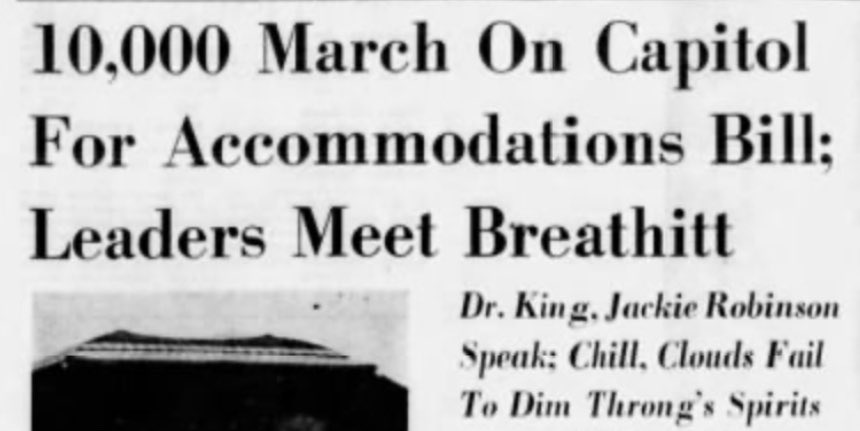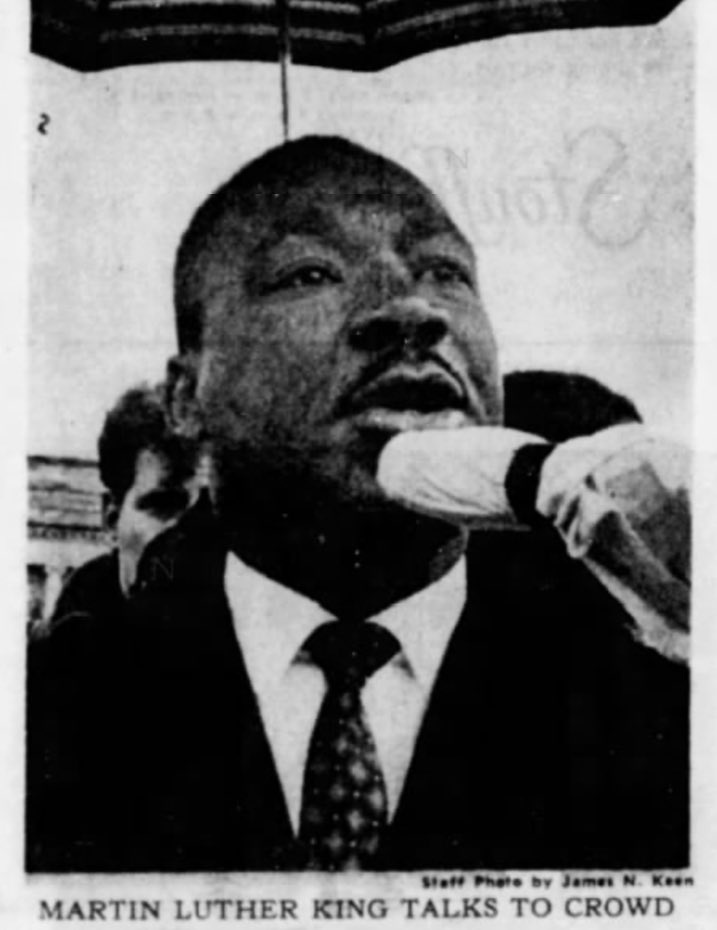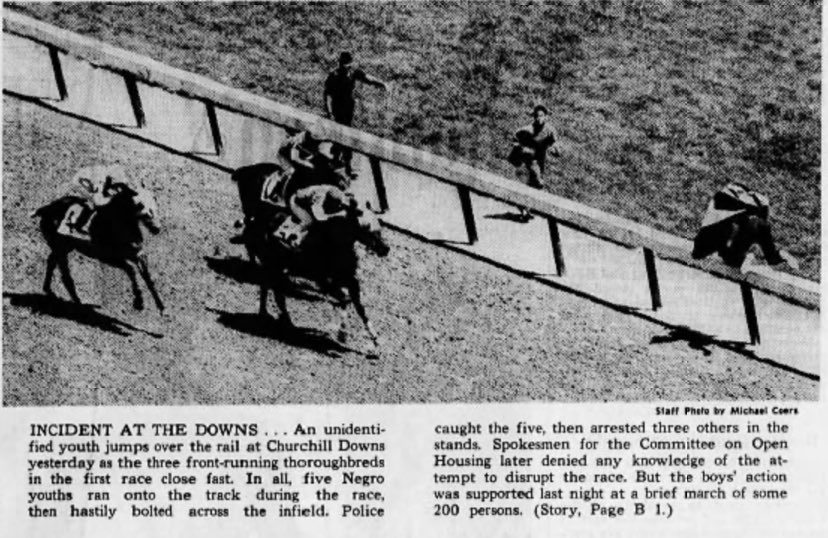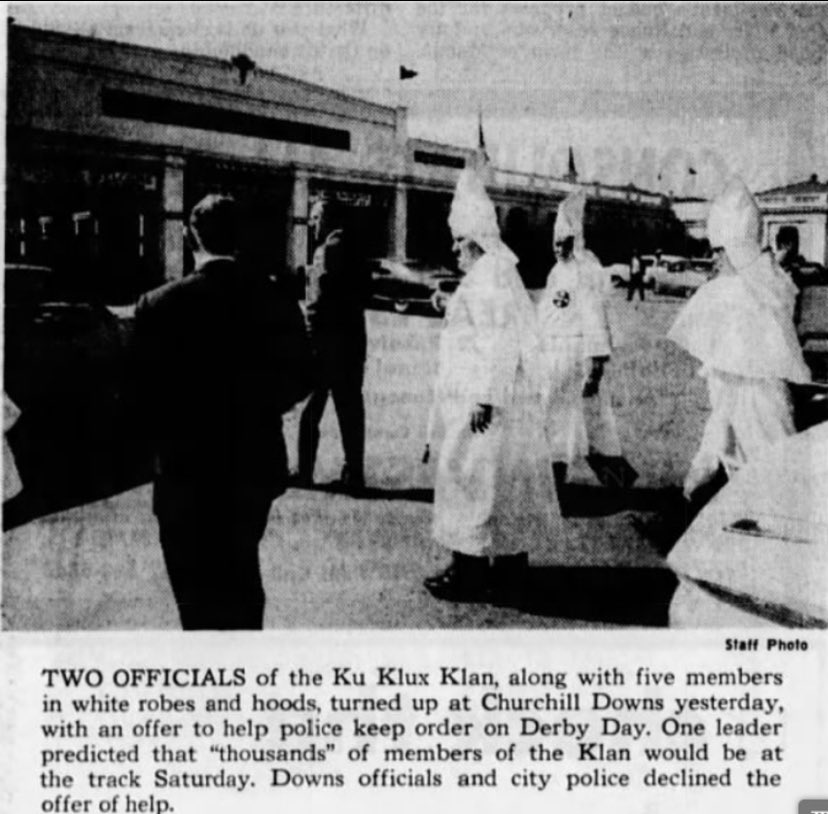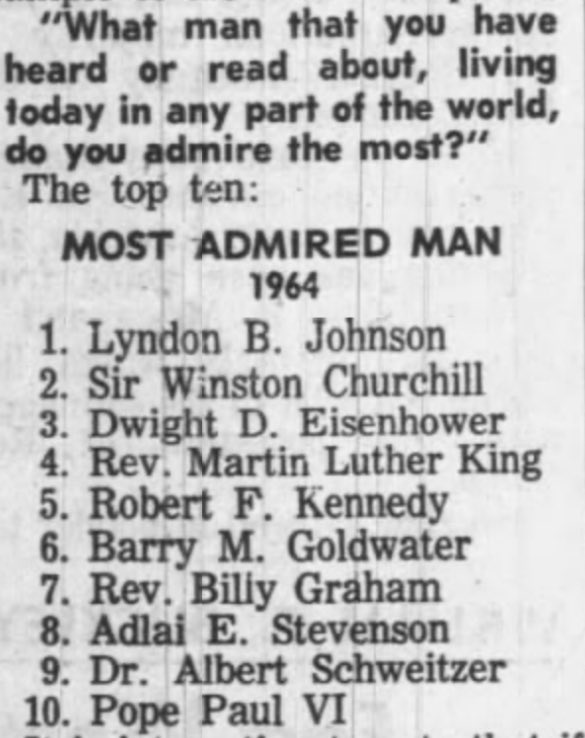NEW | Between a commencement address in 1957, a massive rally alongside Jackie Robinson in Frankfort in 1964, and a Kentucky Derby protest standoff in 1967, Dr. Martin Luther King Jr. was truly influential in the commonwealth.
MLK’s Kentucky legacy: https://www.courier-journal.com/in-depth/news/history/2021/01/18/martin-luther-king-jrs-legacy-in-kentucky-was-influential/6587678002/?build=native-web_i_p
MLK’s Kentucky legacy: https://www.courier-journal.com/in-depth/news/history/2021/01/18/martin-luther-king-jrs-legacy-in-kentucky-was-influential/6587678002/?build=native-web_i_p
Thread: Dr. Martin Luther King Jr. publicly appeared in Kentucky as far back as 1957, when the 28-year old served as commencement speaker at Kentucky State, telling graduates they were “traveling towards the promised land of social integration, of freedom, and of justice.”
So many people turned out to see King, famed for the 1955 Montgomery bus boycott, that commencement was moved to Frankfort High’s new gym. It was “perhaps the largest crowd of his race ever gathered,” in the town.
In 1964, King and Jackie Robinson led a march of 10,000 people — despite 38-degree temperatures — in Frankfort, demanding legislators and the governor pass legislation to end segregation and discrimination. Among those in attendance was the 15-year old daughter of the governor.
MLK spent much time in Louisville, where his brother was a pastor, in 1967, as part of the open housing movement. There were nightly marches, and hundreds were arrested in a matter of weeks. Muhammad Ali spoke to a crowd in Louisville, decrying mistreatment of King’s brother.
Open housing advocates planned a massive demonstration ahead of the 1967 Kentucky Derby, and one protest leader said to expect “open hell” for Derby Week. A few protesters ran onto the track at Churchill Downs, disrupting a Tuesday race.
“If we are engaged in a righteous and just struggle for freedom, we know the jails can’t stop us,” Dr. King said that Wednesday. “We have tried to get the city to do what it ought to do. And since it refused, we have to let them know that we are not afraid to fill up the jails.”
That same day that Dr. King spoke in Louisville, robed members of the Ku Klux Klan showed up at Churchill Downs proposing to “help keep law and order” on Derby day. The offer was declined by the racetrack and local police.
Hours before the race, though, King called off the massive protest. Some had said it could cause a race riot, and King said: “Sometimes, the prediction of a race riot is an invitation to riot.” Demonstrators instead marched downtown. Later, King’s car was pelted with a rock.
On August 2, 1967, King returned to Louisville in what would be his final appearance in the city: “We have the resources to solve the problem, but the question is, do we have the will? I am worried about our national will.”
He was assassinated in 1968. “Dr. King was like a saint down here,” a Black Louisville bartender said the following day.
In 1964, King was voted as the fourth “Most Admired Man” in the world, but in the final Gallup poll of his lifetime, King received only a 32% positive rating, compared to 63% negative.
It wouldn’t be until 1983 that he was honored with a national holiday.
It wouldn’t be until 1983 that he was honored with a national holiday.
Rev. Charles Elliott, a Louisville pastor since 1961 who marched with Dr. King, recently said that King’s dream is “becoming a reality.”
“We still have racism, but we have Black and white that are now saying righteousness and justice for all makes this country a great country.”
“We still have racism, but we have Black and white that are now saying righteousness and justice for all makes this country a great country.”
Raoul Cunningham, current President of the Louisville NAACP, was a senior at Male High when he first saw King speak, and he was also present for King’s final appearance in Louisville. King left an “everlasting impression” on him.
Read the article here: https://www.courier-journal.com/in-depth/news/history/2021/01/18/martin-luther-king-jrs-legacy-in-kentucky-was-influential/6587678002/
Read the article here: https://www.courier-journal.com/in-depth/news/history/2021/01/18/martin-luther-king-jrs-legacy-in-kentucky-was-influential/6587678002/

 Read on Twitter
Read on Twitter